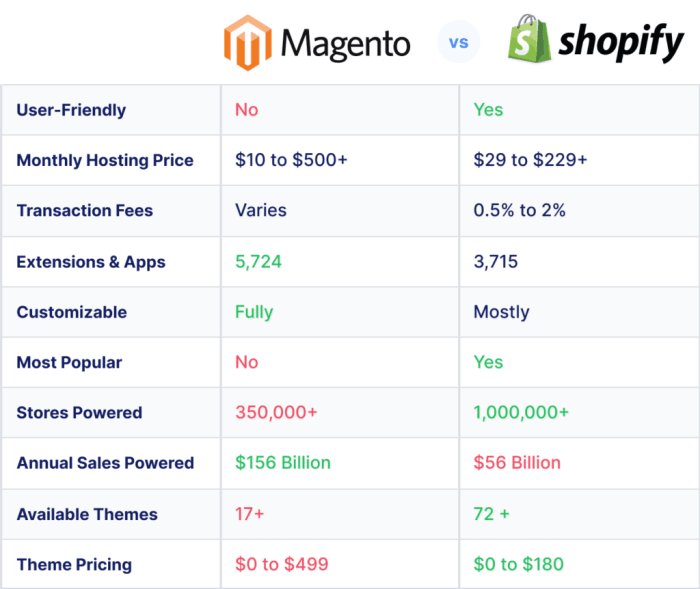Paid vs. Organic Marketing for Law Firms: A Comprehensive Analysis
Paid vs. Organic Marketing for Law Firms delves into the intricate world of legal marketing strategies, shedding light on the contrasting approaches that can lead to success in the digital landscape.
As we explore the realm of marketing tactics for law firms, the dichotomy between paid and organic methods unfolds, offering insights into the nuances that shape their effectiveness.
Paid Marketing for Law Firms
In the competitive landscape of the legal industry, paid marketing has become a crucial strategy for law firms to reach their target audience effectively. By investing in paid advertising, law firms can increase their visibility, generate leads, and ultimately acquire new clients.
Key Platforms for Law Firms
Law firms have a variety of platforms available to run their paid marketing campaigns. Some of the key platforms include:
- Google Ads: Law firms can run pay-per-click (PPC) campaigns to appear at the top of search engine results for relevant s.
- Social Media Advertising: Platforms like Facebook, LinkedIn, and Twitter offer targeted advertising options to reach specific demographics.
- Legal Directories: Websites like Avvo and FindLaw provide opportunities for law firms to advertise their services to potential clients.
Advantages and Disadvantages of Paid Marketing
- Advantages:
- Immediate Results: Paid marketing campaigns can generate quick results in terms of website traffic and leads.
- Targeted Reach: Law firms can target specific demographics and locations to reach their ideal clients.
- Measurable ROI: With analytics tools, law firms can track the performance of their paid campaigns and adjust strategies accordingly.
- Disadvantages:
- Costly Investment: Paid marketing can be expensive, especially for competitive s and target audiences.
- Ad Blindness: Some users may ignore paid ads, leading to lower click-through rates and conversion rates.
- Short-Term Strategy: Paid marketing provides immediate results, but it may not always lead to long-term brand awareness or loyalty.
Successful Paid Marketing Campaigns by Law Firms
One example of a successful paid marketing campaign by a law firm is the use of Google Ads to target specific s related to their practice areas. By optimizing their ad copy and targeting the right audience, law firms can attract potential clients actively searching for legal services online.
Organic Marketing for Law Firms

Organic marketing refers to the practice of using non-paid methods to attract clients and generate leads for a law firm. This can include strategies such as search engine optimization (), content marketing, social media engagement, and building relationships with potential clients.
Strategies for Organic Marketing
- Search Engine Optimization (): Optimizing the law firm's website and content to rank higher in search engine results, increasing visibility and organic traffic.
- Content Marketing: Creating valuable and informative content, such as blog posts, articles, and videos, to establish expertise and attract potential clients.
- Social Media Engagement: Utilizing social media platforms to engage with the audience, share valuable content, and build relationships with potential clients.
- Building Relationships: Networking with other professionals, clients, and industry influencers to establish credibility and gain referrals.
Effectiveness of Organic Marketing vs. Paid Marketing
Organic marketing for law firms can be highly effective in the long run as it helps build credibility, trust, and authority within the industry. While paid marketing can provide immediate results, organic marketing often leads to more sustainable and long-term benefits.
Tips for Improving Organic Reach
- Consistently create high-quality and relevant content that addresses the needs and concerns of your target audience.
- Optimize your website for search engines by using relevant s, meta tags, and optimizing site speed.
- Engage with your audience on social media platforms by sharing valuable content, responding to comments, and participating in conversations.
- Collaborate with other professionals and industry influencers to expand your reach and credibility.
Content Marketing for Law Firms
Content marketing plays a crucial role in promoting law firms by establishing credibility, showcasing expertise, and attracting potential clients in the digital space. Through strategic content creation and distribution, law firms can position themselves as thought leaders in their field and increase their online visibility.
Types of Content for Law Firms
- Informative Blog Posts: Writing in-depth articles on legal topics can help educate potential clients and demonstrate expertise.
- Case Studies: Showcasing successful cases and outcomes can build trust and credibility with potential clients.
- Video Content: Creating videos explaining legal concepts or discussing recent developments can engage audiences effectively.
- Whitepapers and Ebooks: Offering in-depth guides on complex legal issues can attract leads and showcase expertise.
Successful Content Marketing Strategies
One successful strategy is creating a content calendar to ensure consistent publishing and covering a variety of relevant topics. Another effective approach is leveraging best practices to optimize content for search engines and attract organic traffic.
Content Marketing Plan for Law Firms
- Identify Target Audience: Understand the demographics and legal needs of the target audience.
- Research: Conduct research to identify relevant topics and optimize content for search engines.
- Content Creation: Develop high-quality and informative content tailored to the target audience's needs.
- Content Distribution: Share content through various channels such as social media, email newsletters, and guest blogging.
- Measure and Analyze: Track key metrics like website traffic, engagement, and lead generation to evaluate the effectiveness of the content marketing efforts.
Social Media Marketing for Law Firms

In today's digital age, social media marketing has become a crucial tool for law firms to reach a wider audience, build credibility, and attract potential clients. With the right strategy, law firms can leverage social media platforms to showcase expertise, engage with followers, and establish a strong online presence.
The Importance of Social Media Marketing for Law Firms
Social media marketing allows law firms to connect with their target audience on a more personal level, humanizing their brand and fostering trust. By sharing valuable content, engaging in conversations, and showcasing success stories, law firms can position themselves as thought leaders in their respective fields.
- Establish credibility and trust with potential clients.
- Expand reach and visibility in the digital space.
- Engage with followers and build a community around the firm.
Most Effective Social Media Platforms for Law Firms
Not all social media platforms are created equal when it comes to marketing for law firms. It's essential to identify the platforms where your target audience is most active and tailor your content to suit each platform's unique features.
- LinkedIn: Ideal for professional networking, sharing industry insights, and connecting with other professionals.
- Facebook: Great for building brand awareness, sharing informative content, and engaging with a broader audience.
- Twitter: Useful for real-time updates, sharing news, and engaging in conversations with followers.
Dos and Don’ts of Social Media Marketing for Law Firms
When it comes to social media marketing for law firms, certain best practices can help maximize the impact of your efforts while avoiding common pitfalls that could damage your reputation.
- Do: Post regularly and consistently to keep your audience engaged.
- Don't: Share confidential information or discuss ongoing cases on social media.
- Do: Respond promptly to comments and messages to show that you value engagement.
- Don't: Engage in controversial or sensitive topics that could alienate potential clients.
Leveraging Social Media to Build Credibility and Attract Clients
By consistently sharing valuable content, engaging with followers, and showcasing success stories, law firms can use social media as a powerful tool to build credibility and attract new clients. When done strategically, social media marketing can help law firms stand out in a crowded market and establish a strong online presence that resonates with their target audience.
Final Summary
In conclusion, the debate between Paid vs. Organic Marketing for Law Firms highlights the dynamic nature of legal marketing, urging firms to strike a balance between paid promotions and organic growth strategies for optimal results.
FAQ Insights
What are the key platforms for running paid marketing campaigns for law firms?
Common platforms include Google Ads, Facebook Ads, LinkedIn Ads, and sponsored content on legal websites.
How does organic marketing differ from paid marketing for law firms?
Organic marketing focuses on building a brand's online presence through non-paid methods like and content creation, while paid marketing involves investing in advertisements for immediate visibility.
What types of content work best for law firms in the digital space?
Informative blog posts, case studies, legal guides, and client testimonials are highly effective for law firms in the digital realm.
How can law firms leverage social media to build credibility?
By sharing informative legal updates, engaging with followers, showcasing expertise through thought leadership posts, and highlighting client success stories, law firms can enhance their credibility on social media platforms.




